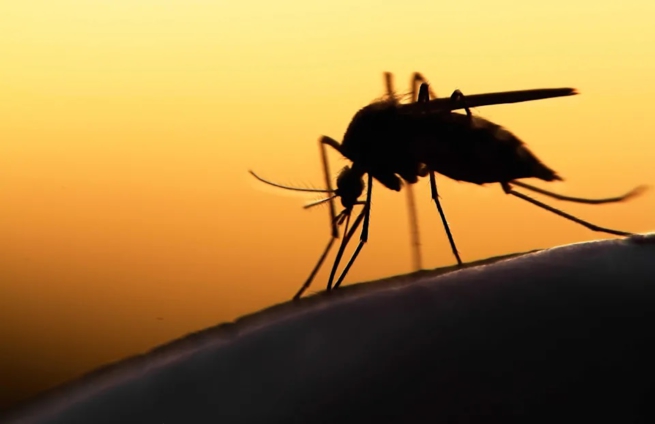Health Ministers from Africa have promised to take a swift and decisive action to put an end to malaria deaths across the continent.
Meeting in Yaoundé, Cameroon, they signed a declaration on March 6, expressing their unwavering dedication to drastically reducing malaria mortality rates.
They vowed to hold themselves and their countries accountable for the commitments outlined in the declaration.
Figures show the global number of malaria cases surged significantly compared to pre-COVID-19 levels in 2022, rising from 233 million in 2019 to 249 million. During the same period, the African region witnessed a rise in cases from 218 million to 233 million.
The region continues to bear the greatest burden of malaria, accounting for 94 % of global malaria cases and 95% of global deaths, totaling an estimated 580,000 deaths in 2022.
They also pledged to demonstrate stronger leadership and allocate more domestic funds to malaria control programs. Their aim is to further invest in data technology, implement the latest technical guidance for malaria control and elimination, and enhance malaria control efforts at both national and sub-national levels.
The agreement also includes plans for increased investments in the healthcare sector to improve infrastructure, personnel, and program implementation. This will facilitate greater collaboration across different sectors and foster partnerships for funding, research, and innovation in the fight against malaria.
In 2018, to intensify efforts in reducing the malaria burden, the World Health Organisation (WHO) and the RBM Partnership to End Malaria introduced the "High burden to high impact" approach. This targeted initiative aims to expedite progress in countries most severely affected by malaria.
The declaration signed at today's conference aligns with the "High burden to high impact" approach, which is built upon four key pillars: political determination to reduce malaria fatalities, strategic data to facilitate impactful actions, improved guidance, policies, and strategies, and a coordinated national response to malaria.
The Health Minister of Cameroon, Manaouda Malachie, stated that the declaration mirrors the collective dedication of African nations and their partners to safeguard the populations from the severe impacts of malaria.
“We will work together to ensure that this commitment is translated into action and impact,” he said.
According to available data, 11 African countries that collectively bear about 70% of the worldwide malaria burden include Burkina Faso, Cameroon, Democratic Republic of the Congo, Ghana, Mali, Mozambique, Niger, Nigeria, Sudan, Uganda, and Tanzania.
Nevertheless, advancements in tackling malaria in these heavily affected African countries have halted since 2017 due to various factors including humanitarian crises, inadequate access to and substandard quality of healthcare services, the impacts of climate change, gender-related obstacles, biological hurdles like insecticide and drug resistance, and global economic downturns.
On a global scale, funding for malaria control remains insufficient. In 2022, only US$4.1 billion, slightly more than half of the required budget, was allocated for malaria response efforts.
Director-General of the World Health Organisation (WHO) Dr Tedros Adhanom Ghebreyesus remarked that globally significant strides have been made against malaria in recent decades. However, since 2017, this progress has come to a standstill.
“The COVID-19 pandemic and long-standing threats like drug and insecticide resistance pushed us further off-track, with critical gaps in funding and access to tools to prevent, diagnose and treat malaria. With political leadership, country ownership and the commitment of a broad coalition of partners, we can change this story for families and communities across Africa,” he said.
WHO Regional Director for Africa, Dr Matshidiso Moeti stated malaria continues to claim lives, particularly among children, and inflicts immense suffering on families across our region.
He applauded the ministerial declaration, which underscores a firm political resolve to alleviate the burden of this deadly disease with renewed urgency and commitment, she said, the continent can expedite progress towards a malaria-free future.
“Malaria continues to cause preventable deaths in children and great devastation to families across our region. We welcome today’s ministerial declaration, which demonstrates a strong political will to reduce the burden of this deadly disease. With renewed urgency and commitment, we can accelerate progress towards a future free of malaria,” said Dr Moeti.
The Yaoundé conference, jointly organized by the World Health Organisation (WHO) and the Government of Cameroon, convened Ministers of Health, global malaria partners, funding agencies, scientists, civil society organizations, and other key stakeholders in the fight against malaria.
The conference aimed to evaluate advancements and hurdles in meeting the objectives outlined in the WHO global malaria strategy, deliberate on approaches to address challenges and secure funding for malaria initiatives, reach consensus on efficient strategies and actions to hasten the reduction of malaria-related deaths in Africa, and create a plan to enhance political dedication and community involvement in malaria control, incorporating a transparent mechanism for accountability.
Latest Stories
-
Nuamah’s Olympique Lyon relegated to Ligue 2 over financial troubles
6 minutes -
SHS students to debate Copyright Issues at 2025 Ghana Book Fair
27 minutes -
Supreme Court vetting report approved despite Minority pushback
30 minutes -
Ghana’s development agenda strengthened as NDPC signs MoU with KPMG
36 minutes -
Journey to the West: A Struggle through Ghana’s deteriorating roads
56 minutes -
AMA clamps vehicles for violating revised street loading hours
1 hour -
Sylvester Tetteh declares interest in NPP General Secretary position
2 hours -
Fifi Kwetey urges full return of Rawlings family to NDC core
2 hours -
Our ‘Thank You Tour’ was turning into a popularity contest – Nana Akomea
2 hours -
Seven arrested over robberies at Ashaiman Sakasaka Park and Dagomba Junction
2 hours -
The Media’s Role in shaping cultural norms, perception, and behavior toward leadership and democratic values in Ghana’s Reset Agenda
2 hours -
Volta Regional Minister rallies districts to prioritise disaster preparedness and environmental resilience
2 hours -
‘Funny’ sells: Meet the comedian blending marketing with humour (LOLs to ROIs)
2 hours -
Minority slams ‘unlawful’ dismissal of Bank of Ghana staff, demands immediate reinstatement
2 hours -
Ghana launches PANAFEST & Emancipation Day 2025 in Accra
2 hours

